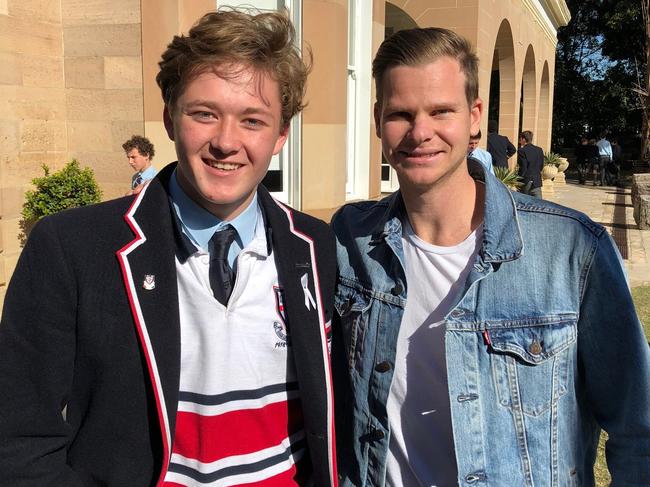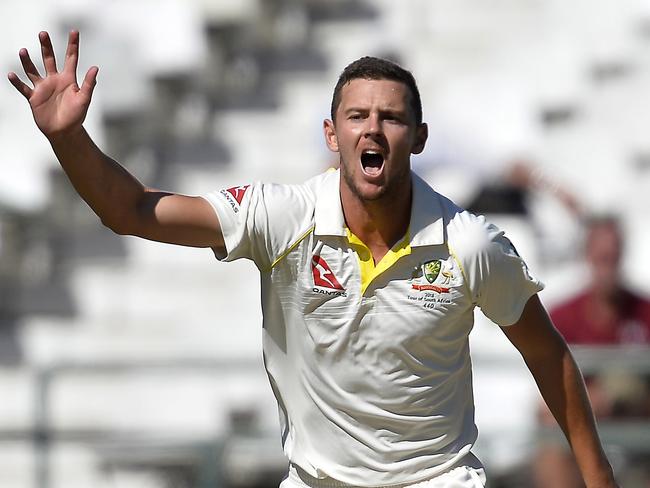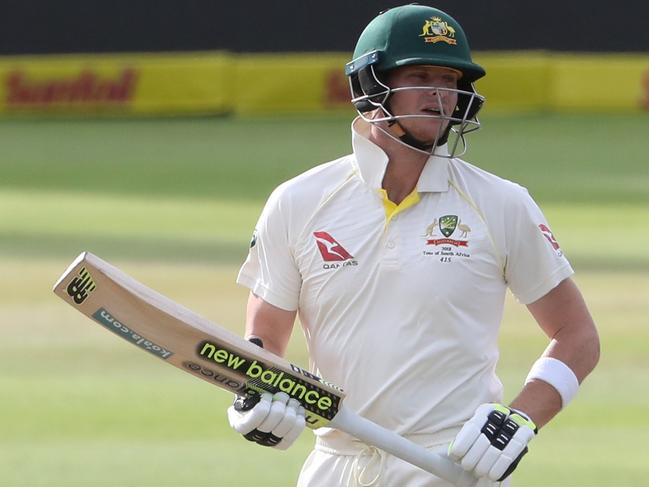Robert Craddock: Elite cricketers should reconnect with grassroots through community service
COMMUNITY service: It should be a privilege not a punishment and part of every elite Australian cricket contract. You reach the top you go back to your roots. If not 100 hours then something meaningful, writes Robert Craddock.
Cricket
Don't miss out on the headlines from Cricket. Followed categories will be added to My News.
- England v Australia: Aussie white-ball fortunes at embarrassing low
- Australia under pressure to play Alex Carey as one-day keeper
COMMUNITY service gets a bad rap. Three cricketers have been ordered to do it. All cricketers should do it.
It should be a privilege not a punishment and part of every elite Australian cricket contract.
You reach the top you do community service each year. If not 100 hours then something meaningful.
When Australia ordered Steve Smith, David Warner and Cameron Bancroft to do 100 hours of community service after the ball-tampering scandal you could almost picture an invisible magistrate saying “for your crimes you will have to go back down the ladder and mix with communities, kids, sick people and see how you like that …’’

Yet this time spent reconnecting with grassroots could be more important than anyone could realise.
Josh Hazlewood, an unpretentious, country-raised lad from Tamworth, last week was bold enough to step outside the cricket bubble, take a searching look inside and be candid enough to admit a few frailties.
When asked, in the wake of the South African ball-tampering scandal, whether Smith was ready for the massive responsibilities that went with being Australian captain, Hazlewood said “cricket-wise I think he was ready, he probably wasn’t ready with everything that came with it I guess”.
“It’s a different time now where we’re basically cricketers from the time we leave school and we don’t really experience life outside of cricket and the cricket environment, back in those times they probably got out in the world, had a few jobs, learned a lot of life lessons. Now you go straight from school into a cricket environment and cricket is all you know.”
It’s an interesting point.

Through the years Australia has had cricket captains whose professions include dentist, grazier, crime reporter, plumber, pharmacist, whiskey agent, schoolteacher and surveyor.
Many of them had been buffeted by life’s abrasive forces long before they took the steering wheel of the nation’s most famous sporting team.
Their performances inside the cricket bubble were all the better informed because of their experiences outside it.
But the modern era — and this is no one’s fault — is different. There is nothing wrong with the youth of today. They just catch a different train so to speak.
Smith left school at 16 to be a cricketer and never looked back.
But he never looked sideways either because he did not have to. He never had to tally a balance sheet, arrive at work fatigued, be roasted by his boss, think deeply about customer relations or do all the basic things that sound boring but condition a man to the world.
Which brings us back to community service. With cricketers being paid so much these days it is not realistic to expect them to work jobs as well as play. That era is long gone.

But they still have time to connect to their communities at the most basic levels.
Imagine how good it would be for them to do Meals on Wheels or more school or hospital visits or extended work at club level such as the Queensland Bulls will do next week when a group of them coach some physically impaired cricketers.
In bygone eras players never lost connections with their clubs.
Some players like fast bowler Geoff Lawson would routinely check their grade scores on a Saturday night when they were on tour with the Australian side.
There are pockets of this now. Matt Renshaw, for instance, is still very much connected to his club Toombul. But generally ties to clubs are not as strong as what they were.
That’s unfortunate because club people are the most grounded people in cricket. They work hard for a living, rent offices, do trades, sell insurance, teach children. They are the real Australia.
Cricket people often lament that it’s sad the cubbies don’t get to mix with the stars as much but it is equally sad the other way around.
*****
THE GOOD: The World Cup. Just outstanding fare. Makes every other sporting World Cup look like your district playoffs. Passion, pride, good humour, exceptional skills and — so far — precious little off-field dramas. Russia has done itself proud. Go figure.
THE BAD: Having to wait nearly a week for Phil Mickelson to jump off his high horse and admit he it got it terribly wrong by hitting a ball while it was still moving at the US Open. It will remain a controversial blot on his career.
THE UGLY: Australia’s 50-over team is on those nose. Just two wins out of 19 matches spanning a year is a horrible result. This team is a dog’s breakfast with no core and no plan. And the clock is ticking for next year’s World Cup.
LIVE Stream the Australia v England One Day Internationals and Twenty20 on FOX SPORTS. SIGN UP NOW >
Originally published as Robert Craddock: Elite cricketers should reconnect with grassroots through community service
